MB Stories
Union Budget 2022-23

The Union Budget 2022-23 was presented by the Finance Minister, Nirmala Sitharaman, in the Parliament on February 1, 2022. This is the Minister’s fourth straight Budget and the sixth Budget session to be held since the outbreak of the pandemic in 2020. Stalwarts from the healthcare industry are disappointed with the recently announced Union Budget 2022-23. While the support to mental health sector is welcome, the Budget does not offer much for essential healthcare services, or to the medical devices industry.
Industry Comments
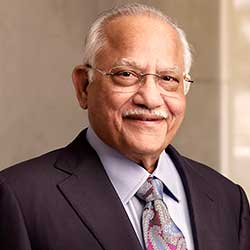
Dr Prathap C. Reddy
Chairman,
Apollo Hospitals Group
“This year, the Budget has truly put the spotlight on key issues facing the nation as it emerges from two years of the pandemic. The Union Budget 2022 moves to address the pressing needs with announcements that will act as an emollient not just for the economy but also for the people. With its digital push in education and skill development for all, the Budget demonstrates that it has its heart in the right place.
During the pandemic, we saw an immense contribution of start-ups to innovation in healthcare, and the extension of the tax benefits for another year should encourage more start-ups in the healthtech space to come up and invest in R&D, especially in the field of AI-powered smart wearables and predictive healthcare. This will in turn be invaluable in strengthening our fight against non-communicable diseases, which can otherwise derail the economic recovery by impacting our productive demographics.
The Budget keeps us on track to enable universal health accessibility with the proposed National Digital Health ecosystem. With digital registries of health providers and health facilities, and a unique health identity for each individual, this will help in providing universal access to health facilities. This shows the enhanced focus on health along with the National Tele Mental Health program. At Apollo Hospitals, we look forward to contributing to the success of these path-breaking initiatives, along with the rest of the private healthcare sector.”
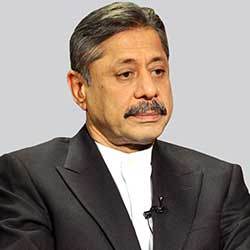
Dr Naresh Trehan
Chairman and Managing Director,
Medanta – The Medicity
“If you look at the Budget, there is a very little mention of healthcare in the Budget; it occupies very little attention. Skilling is getting intensified, which is good because we need a lot of skilled manpower to assist with the healthcare-delivery system. The second thing is the National Health Registry, which gives a comprehensive platform for everyone to network and learn about the status of our infrastructure and healthcare capabilities, which will be quite beneficial. The third issue addressed was the mental health problem. It is true that in the pandemic, a lot of people have suffered at that, then a mechanism for mental health will definitely help. But beyond that, none of the other issues were addressed in this Budget. The Finance Minister mentioned that we have a robust health system since we survived the pandemic. It has become strong, and all that is true, but the question is that is it future-ready?
What is required? A robust infrastructure is required. It needs to be advanced and it needs to be renewed. We need high-care tertiary hospitals to deal with pandemics like these. At some level, the smaller hospitals can handle the caseload. But you saw what happened in the second wave. The point is that we need to be able to advance the metro hospitals. We need financing at the national level. We need to expand new technologies and research.”
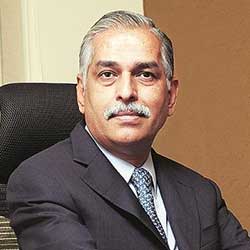
Dr Ashutosh Raghuvanshi
Managing Director and CEO,
Fortis Healthcare Ltd.
“It is very encouraging to see the government’s attention on mental health of the citizens. The proposed National Tele Mental Health program will prove to be beneficial for a large section of the society, enabling access to quality mental health counselling. The announcement regarding upgradation of 2 lakh Angadwadis and the rolling out of the Digital Health Mission will also help in providing greater access to healthcare services and strengthen capacities. Digital health ecosystem is an area where we would have appreciated some more allocation, especially the National Digital Health ID initiative. Of course, as the program is a long-term one, I am sure that funds will be made available in the future. That apart, the special status given to data centers is going to have an impact on the digitization of the healthcare ecosystem, both from the insurers’ as well as the providers’ perspective. I think these are very positive outcomes from the health perspective. As the healthcare sector has been at the forefront of battling the Covid-19 pandemic, it would have been great if certain allocations were enhanced.”

Ameera Shah
Promoter and Managing Director,
Metropolis Healthcare Ltd.
“India’s growth is estimated to be at 9.27 percent, as mentioned by the honorable Finance Minister, and it is assuring to see the government’s focus on women, youth, and rural development. Much-needed attention is given to the ease-of-access to healthcare services through an open platform of the National Digital Health Ecosystem. The aspects of digital registries of health providers and health facilities, unique health identity, and universal access to health facilities should be helpful to align services to demands efficiently. To that end, educational institutions in Bengaluru comprised of the best talents and minds will serve as the technical arm. The initiative taken for mental health is welcomed by the healthcare industry. Irrespective of age, gender, and occupation, the need for focus on mental health is necessary, given the current situation. The National Tele Mental Health program is a positive step to support national mental health counseling and care services. Moreover, the Ministry of Women and Child Development, through their Saksham Anganwadi, keeps women and child development at the forefront in terms of health, nutrition, and required infrastructure. This will vastly improve the quality of life for our citizens. Greater funding and resource allocation to enhance the healthcare infrastructure both in urban areas and in Tier-II and Tier-III towns have been prioritized.
The Budget also highlighted the importance of genomics and AI aptly in the future. However, a larger push for overall infrastructure, manpower, and investments in public-private partnerships, which can help in further strengthening the healthcare ecosystem in the country, remains undiscussed.”
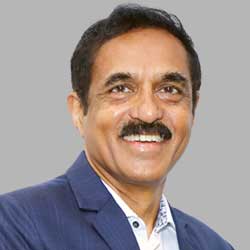
Dr BS Ajaikumar
Executive Chairman,
HealthCare Global Enterprises Limited
“I was happy to note the government’s decision to launch a National Tele Mental Health program. The open program for the National Digital Health ecosystem is a welcome step, given the widespread devastation caused by the Covid-19 pandemic, especially on the mental health of people across all age groups, from kids to senior citizens. Of course, much will depend on the quality of its implementation in equitably providing counselling and care services to people across the length and breadth of the country. Another welcome move is the decision to provide tax relief for the differently-abled and their dependents. Having said that, it was disappointing not to hear of any announcements on many critical areas facing the healthcare industry, like the urgent need to raise healthcare expenditure to at least around 2.5 percent of GDP. Given the chronic issues facing healthcare in India, the 1.8 percent falls short of addressing the lingering challenges on the ground. We also need universal health coverage to enforce uniformity of treatment through cross-subsidies, devoid of financial strain and debt traps for the economically challenged. I was also expecting heartening policy measures on many other key issues; like the investments in tech-enabled systems using predictive genomics to fight the evolving mutations and likelihood of newer microorganisms, rationalization of the tax structure around life-saving drugs and emergency treatments, as well as the lowering of GST slabs and raising of tax deduction limits that are imperative to serve the larger cause of insurance.”

Navneet Bali
Regional Director – North Region,
Narayana Health
“The only way to democratize healthcare is to make it accessible, which is clearly seen in the Budgetary push for telehealth and the digital health ecosystem. The benefits seem to be given to the much-needed rural sections, which lack physical infra and super specialist doctors – while the urban population has easy access and spending capability at high-end private healthcare institutions, the rural segment lacks both, which could be addressed through detailed healthcare Budget allocations. Healthcare accessibility in rural areas is clearly seen as the long-term aim of the government and is a welcome step which is seen through digital adoption. There has been a lot of talk about mental health during Covid-19. The government has taken cognizance and planned to set up 23 mental health centers, which is a much appreciated step in the right direction.”
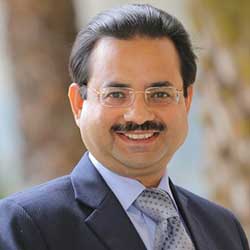
Dr Rana Mehta
Partner and Leader Healthcare,
PwC India
“The pandemic has caused a silent global mental health epidemic. The use of telemedicine to diagnose and treat such patients has proved to be highly effective given the unobtrusive nature of the interaction which also ensures patient privacy. Given the shortage of mental health professionals, especially in rural areas, telemedicine will greatly enhance accessibility for patients requiring psychiatric help.”

Dinesh Chauhan
CEO,
CORE Diagnostics
“We congratulate the government for presenting a dynamic Budget with a major focus on strengthening the healthcare sector. Budget-22 is visionary and focused on implementing major steps to revitalize the healthcare industry, including driving healthcare penetration underpinned by technology and access. The National Digital Health Ecosystem is a strong move to enable equitable access to healthcare services as well as toward creating a robust healthcare ecosystem. The introduction of the National Tele Mental Health Program to access quality mental health services is a much-appreciated move, considering the rise of pandemic-accentuated mental health problems in India. While there has been no significant announcement related to the diagnostics sector, it is encouraging to see the government focusing on the PPP model and digital health, which will further ensure accessibility and availability of quality healthcare services in remote locations. We will continue to bring significant change in the diagnostics space with our continued investments in developing sophisticated diagnostics for early detection and an outcome-based line of treatment for patients.”

Dr Ravi Gaur
Founder,
DRG Path Lab
“The pandemic has caused a fair number of silent mental health issues. Thus, the mental health component of the Budget is definitely a welcome step. Continued focus on skill initiatives, telehealth, and other digital services will provide a much-needed boost to the accessibility of healthcare, especially in remote geographies. The announcement of a tax reduction for people with disabilities is another positive step. The government should have focused more on primary healthcare investment in preventive healthcare as a priority. A strong push for augmenting tertiary care hospitals, upgrading the existing services and research investments is definitely expected for future readiness. The Budget does not provide much for other essential services in the healthcare sector, including the crucial medical devices and diagnostic industry, which have played a very crucial role in tackling the pandemic. We were certainly expecting a significant increase in healthcare spending, at least up to the promised 3 percent of GDP. Unfortunately, this still looks like a bit of a distant task.”

A Ganesan
Group Vice Chairman,
Neuberg Diagnostics
“The reduction of the surcharge on long-term capital gains to 12 percent is a positive step. Unintentional errors in income tax can be corrected by filing an updated return within two years from the end of the assessment year. This is a positive change. Department to wait before filing an appeal in higher court in respect of disputes of similar nature with regard to interpretation of law, in case cases of similar nature are pending in supreme court/other courts. This is also a very good step. Significant increase in capital expenditure allocation by almost 35 percent will probably spur economic growth and create jobs. Extension of emergency credit guarantee scheme till March 31, 2023, is a step in the right direction. National Digital Health Ecosystem and National Tele Mental Health program are both excellent concepts if implemented well.”
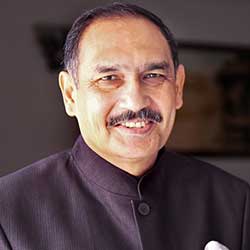
Dr Harsh Mahajan
President
NATHEALTH
The rapid implementation of the Digital Health Mission, the shift toward providing unique health identities, the upgrading of two lakh Anganwadis, the alignment of the national skill framework with industry needs, and value-based procurement all bode well for healthcare modernization in the post-pandemic era. The launch of the National Tele Mental Health Program has brought mental health issues to the forefront, which will improve access to quality mental health counselling. The focus on promoting R&D in the fields of Artificial Intelligence, genome sequencing, and pharma is a much-needed demand being fulfilled. We congratulate the government on record GST mobilization. However, the embedded credit issue in the healthcare sector still remains unaddressed, and we hope to soon find a viable solution acceptable to the government. Greater funding and resource allocation for strengthening healthcare infrastructure not only in urban areas but also in Tier-II and Tier-III towns has always been a priority for the government, and this would be pursued while maintaining quality of care and financial viability.
There is also a need to create fiscal incentives for investments/PPP in both hospital and out-of-hospital delivery models like telemedicine, home care, senior care, and long-term care. We request the government to consider lowering the cost of financing capital and allowing free flow of credit into the sector, especially for the build-up of new infra and capacity, and to continue investment in incentivizing capacity build-up of supply-side levers through PPP like medical education, diagnostic, and device manufacturing.”

Rajiv Nath
Forum Coordinator,
Association of Indian Medical Device Industry (AiMeD)
“We were expecting the government to move forward on promised reforms and anticipated conducive measures to boost domestic manufacturing of medical devices. It is frustrating that against our expectations, the government has not included any measures to help end the 80–85 percent import dependence forced upon India, and an ever increasing import bill of over ₹46,000 crore and promoting growth of Indian medical device industry other than repeating last year’s assurance to end custom exemptions of products that can be made in India.
Sadly, the Union Budget 2022 speech had no strategic stated measures to boost domestic manufacturing. These are the same domestic manufacturers, when imports got disrupted during Covid-19 crisis, the government relied heavily on them to meet the rising demand for essential Covid items for the country, pushing the Indian medical devices sector to become self-reliant. We are disheartened not to notice any changes in custom duty as done for other sectors and are very hopeful that the fine print of the Union Budget would have possibly acted upon our recommendations on a predictable tariff policy for a Make in India push for phased manufacturing plan for components and finished medical devices and allocations for testing infrastructure as well as for MedTech parks and cluster developments. Supporting policies are needed so that Indian medical devices industry can make quality healthcare accessible and affordable for common masses, aim to place India among the top five medical devices manufacturing hubs worldwide. The only positive announcement was on public procurement by allowing 75-percent prompt payments and bringing in a weighted price preference on account of quality, which is especially critical in healthcare-related medical devices.”
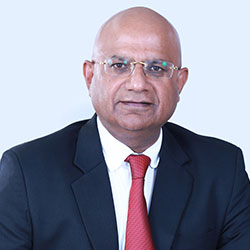
Dr Alok Roy
Member, FICCI, Health Services Committee and Chairman Medica Group of Hospitals
“Budget 2022-23 seems very disappointing for the healthcare sector. India’s growth is estimated to be 9.27 percent, and healthcare will play a major role in the boost. Strengthening of health infrastructure and speedy vaccination program implementation have strengthened the Indian healthcare system. The decision to start an open platform for the National Digital Health Ecosystem is a welcome move. The emphasis to roll out digital registries of health providers, health facilities, unique identity consent framework with and universal access to health facilities will add more values to Ayushman Bharat Digital Mission. We healthcare providers heartily welcome the government’s focus on mental health issues as this has set an alarm across age groups post the pandemic. The announcement of launching the National Tele Mental Health Program, which will include a network of 23 telemedicine mental health centers of excellence, is a much-appreciated move that the government has made.
It was expected that the government would look at increasing healthcare expenditure above 2.5 percent of the GDP, but there was not adequate attention paid to it. Although there had been a rise of 137-percent allocation in healthcare sector last year, much was fulfilled in reality by the government. Overall, the proposals made in Budget-22-23, should have made quality healthcare accessible and affordable. The government should have focused more on primary healthcare investment and given the healthcare system national priority status, as was done for the IT sector.”
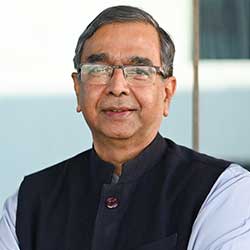
K Srinath Reddy
President of Public Health Foundation of India
“Within the health sector itself, the increases have been less than expected. With an allocation of ₹37,000 crore, the National Health Mission received an increase of 7 percent over last year’s expenditure. The need to galvanize the slow-paced urban health mission and strengthen rural primary healthcare across the country calls for higher allocations. The health workforce expansion in primary care is especially urgent in view of the plan to expand services through health and wellness centers. Allocation for the Pradhan Mantri Jan Arogya Yojana is static at ₹6412 crore, as the allocations have remained substantially under-utilized in the past two years. The total allocation for the health infrastructure mission is ₹5156 crore, which is surprising since the scheme is designed to spend ₹64,180 crore over a six-year period and has spent only ₹900 crore since its launch in October last year. AYUSH gets a 14.5-percent increase, while Swasthya Suraksha Yojana, which focuses on the expansion of tertiary care infrastructure, gets a 35.1-percent increase. The Department of Health Research has been allocated ₹3200.65 crore, which represents a rise of 3.9 percent. Given the need for strong impetus to scale up research in both communicable and non-communicable disorders, as relevant to the Indian context, and also extend health systems research into implementation and evaluation research related to national health programs, this is less than anticipated.”












